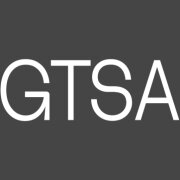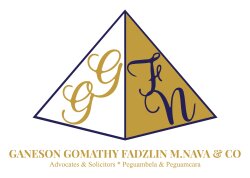Best Whistleblower & Qui Tam Lawyers in Malacca
Share your needs with us, get contacted by law firms.
Free. Takes 2 min.
List of the best lawyers in Malacca, Malaysia
About Whistleblower & Qui Tam Law in Malacca, Malaysia
In Malaysia, whistleblower protection is aimed at encouraging the reporting of misconduct within organizations by safeguarding individuals who report wrongdoing from retaliation. While Malaysia does not have a specific Qui Tam law, which allows private individuals to file lawsuits on behalf of the government to seek penalties from fraudsters, whistleblower protections are an important part of ensuring corporate and governmental integrity. In Malacca, as in the rest of Malaysia, these laws are essential for maintaining transparency and accountability in both the private and public sectors.
Why You May Need a Lawyer
Seeking legal advice in the context of Whistleblower and Qui Tam issues can be crucial for several reasons. Individuals may require a lawyer's expertise when they face retaliation from employers after making a disclosure, need guidance on the protections available under Malaysian law, or are uncertain about the consequences of blowing the whistle on unethical practices. In cases where an individual believes there has been fraud against the government but is unsure of how to proceed, legal counsel can provide clarity and strategic advice.
Local Laws Overview
In Malaysia, the Whistleblower Protection Act 2010 is the primary legislation offering protection for whistleblowers. It applies to employees in both the public and private sectors, provided the disclosure of information is made to an enforcement agency. The Act safeguards against retaliatory actions such as dismissal or disciplinary actions and ensures confidentiality of the whistleblower's identity. Despite this, navigating the legal landscape regarding qui tam actions requires understanding other relevant laws such as the Malaysian Anti-Corruption Commission Act and the Companies Act 2016, which are instrumental in addressing fraud and corruption.
Frequently Asked Questions
What is the purpose of the Whistleblower Protection Act 2010?
The Act aims to encourage individuals to report improper conduct by providing protection against retaliation and maintaining confidentiality of the whistleblower’s identity.
Who can be considered a whistleblower under Malaysian law?
Any person, including employees, who discloses information regarding corruption or misconduct to an enforcement agency, falls under this category.
What types of wrongdoings can be reported?
Wrongdoing includes any criminal offence, breach of statutory duty, danger to public health or safety, or damage to the environment.
How are whistleblowers protected from retaliation?
Whistleblowers are protected from retaliatory actions such as being terminated or demoted at their workplace once they make a disclosure to an appropriate authority.
Is anonymity guaranteed for whistleblowers?
Yes, the identity of the whistleblower is kept confidential under the law unless the whistleblower consents to disclose it.
Can a whistleblower also be an accomplice?
Yes, and the law allows whistleblowers who have been part of the wrongdoing to be given immunity, depending on the circumstances.
Can a whistleblower report anonymously?
While the law provides for anonymous reporting, it is generally encouraged to provide contact information to facilitate investigations and legal proceedings.
What are the consequences of making a false report?
Submitting a report that the whistleblower knows to be false can result in penalties under the law.
Are there protections for whistleblowers in the private sector?
Yes, the law applies to both public and private sectors, protecting individuals who report misconduct within their organizations.
What is the role of the enforcement agency in whistleblower cases?
Enforcement agencies receive disclosures, investigate claims, and ensure that whistleblowers are protected under the act.
Additional Resources
Individuals seeking further assistance can consult the Malaysian Anti-Corruption Commission (MACC) for guidance related to corruption-related disclosures. Legal aid centers and NGOs like Transparency International Malaysia may also offer support in understanding the implications of blowing the whistle.
Next Steps
If you require legal assistance with a Whistleblower or Qui Tam concern, consider reaching out to legal professionals who specialize in Malaysian employment or corporate law. Document all relevant details and evidence of the wrongdoing you intend to report and consult with a lawyer to understand your rights and protections under the Whistleblower Protection Act 2010. This will help ensure your safety and efficacy in reporting misconduct.
Lawzana helps you find the best lawyers and law firms in Malacca through a curated and pre-screened list of qualified legal professionals. Our platform offers rankings and detailed profiles of attorneys and law firms, allowing you to compare based on practice areas, including Whistleblower & Qui Tam, experience, and client feedback.
Each profile includes a description of the firm's areas of practice, client reviews, team members and partners, year of establishment, spoken languages, office locations, contact information, social media presence, and any published articles or resources. Most firms on our platform speak English and are experienced in both local and international legal matters.
Get a quote from top-rated law firms in Malacca, Malaysia — quickly, securely, and without unnecessary hassle.
Disclaimer:
The information provided on this page is for general informational purposes only and does not constitute legal advice. While we strive to ensure the accuracy and relevance of the content, legal information may change over time, and interpretations of the law can vary. You should always consult with a qualified legal professional for advice specific to your situation.
We disclaim all liability for actions taken or not taken based on the content of this page. If you believe any information is incorrect or outdated, please contact us, and we will review and update it where appropriate.









